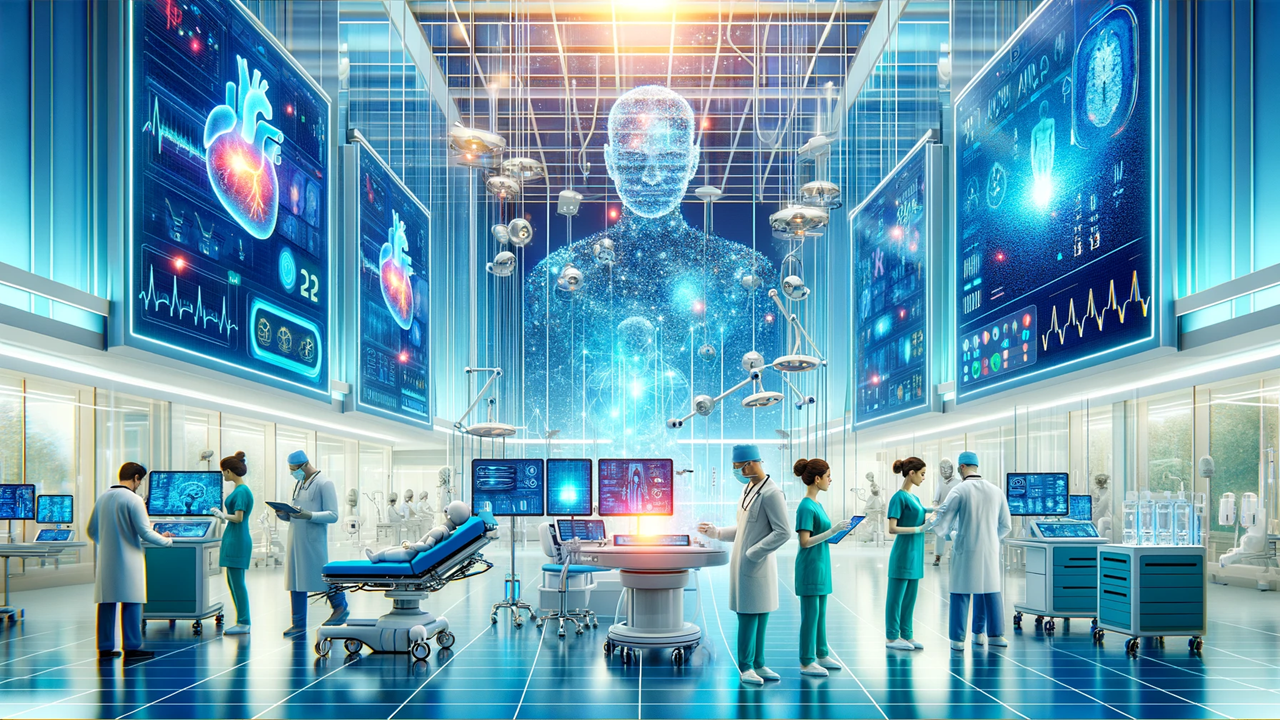AI and Healthcare: A Partnership Saving Lives Behind the Scenes
AI and healthcare are collaborating to revolutionize medicine, offering precise diagnostics, personalized treatments, and predictive care. This partnership is not without its challenges, including ethical concerns and data privacy. However, success stories and future prospects highlight AI's potential to significantly enhance patient care and save lives.

Explore the revolutionary partnership between AI and healthcare, how it's transforming diagnosis, treatment, and patient care, and the challenges and successes of integrating AI into medical practice.
The fusion of Artificial Intelligence (AI) and healthcare is creating a transformative era in medicine, where machines and humans collaborate to save lives with unprecedented efficiency. This partnership is not just about technological advancement; it's a beacon of hope for millions, promising more accurate diagnoses, personalized treatments, and predictive healthcare that can prevent diseases before they manifest.
The Rise of AI in Healthcare
AI's integration into healthcare has been a game-changer, powered by breakthroughs in machine learning, natural language processing, and computer vision. These technologies have enabled AI to analyze vast datasets, recognize patterns, and provide insights that were previously unattainable.
AI's Role in Diagnosis and Treatment
AI's capability to process and interpret medical data rapidly has revolutionized diagnostics, making it possible to identify conditions early and with greater precision. Furthermore, AI-driven personalized treatment plans are tailoring healthcare to the individual needs of patients, enhancing outcomes and patient satisfaction.
AI in Medical Research and Drug Development
In medical research and drug development, AI accelerates the discovery of new drugs and therapies by analyzing complex biochemical data. It also enhances clinical trials by optimizing protocols and identifying suitable candidates, reducing time and costs significantly.
AI for Predictive Healthcare
Predictive healthcare, powered by AI, can forecast outbreaks and health trends, enabling preemptive action to mitigate risks. Moreover, it paves the way for preventive medicine, focusing on maintaining health rather than treating disease.
AI in Patient Care and Monitoring
Remote patient monitoring and engagement have been elevated by AI, offering continuous care outside traditional medical facilities. This not only leads to better results for patients but also eases the strain on healthcare systems.
Ethical Considerations and Data Privacy
The integration of AI in healthcare brings forth ethical considerations and the imperative need to protect patient data. Navigating these challenges is crucial to maintaining trust and integrity in AI-driven healthcare services.
Challenges and Limitations of AI in Healthcare
Despite its potential, AI in healthcare faces technical and adoption challenges, including the integration with existing systems and the need for healthcare professionals to embrace new technologies.
Success Stories: AI Saving Lives
Real-world examples and testimonials highlight AI's impact, from detecting rare diseases to predicting patient deterioration, showcasing its potential to save lives and improve healthcare quality.
The Future of AI in Healthcare
Looking ahead, the future of AI in healthcare is bright, with emerging trends like AI-powered genomics and personalized medicine promising to redefine patient care and treatment strategies.
Conclusion
The partnership between AI and healthcare is a testament to the power of technology to enhance and save lives. As this collaboration deepens, it promises to usher in a new era of medical care, where AI-driven solutions stand at the forefront of combating diseases and improving health outcomes globally.










